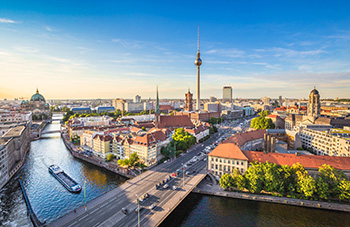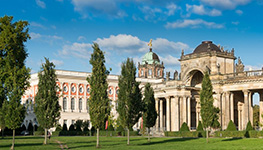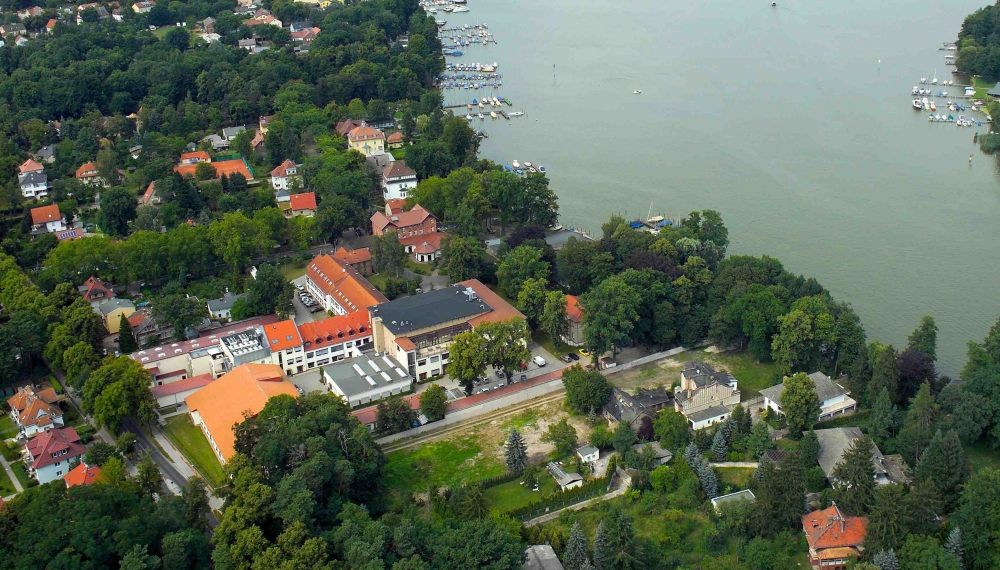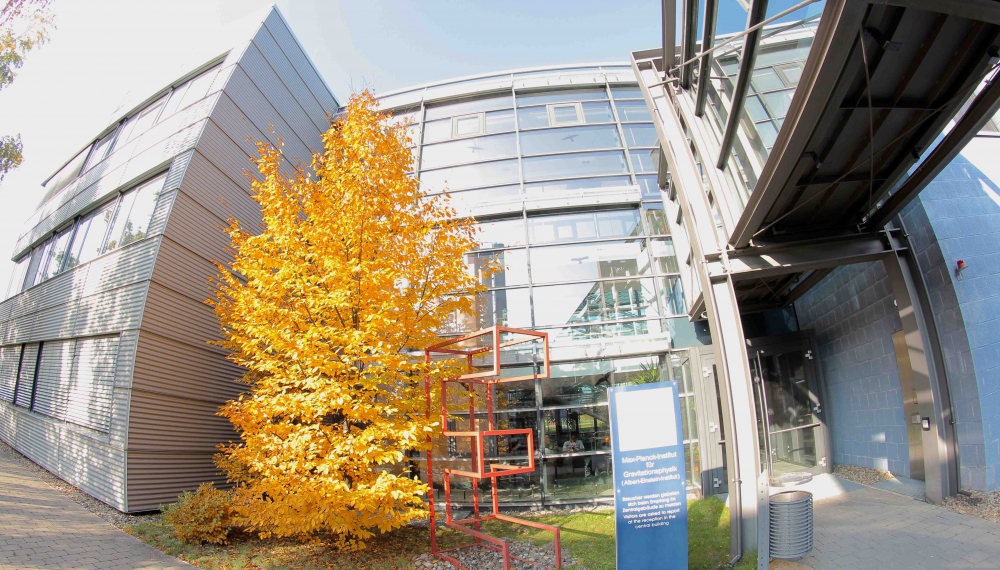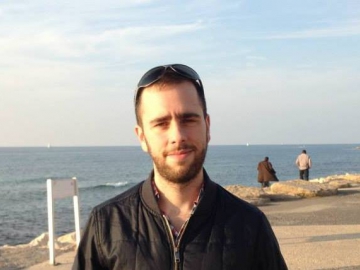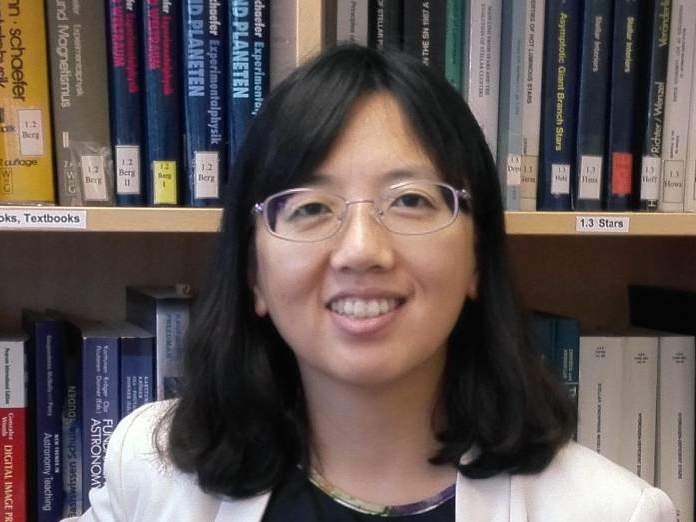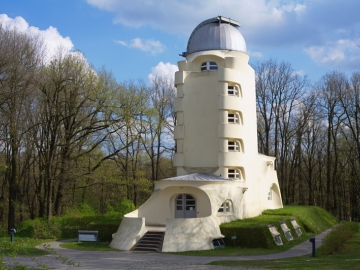Astrophysics attracts students to Potsdam
Astrophysics is a special subdiscipline of physics and is offered only by a few universities in Germany as an independent Master’s program in either “Astrophysics” or “Astronomy.” Potsdam, of course, is one of these universities, as one of the four major locations for astrophysical research in Germany. Here, students can even enroll for astrophysical subjects during their Bachelor studies in Physics.
In Potsdam, students can then choose astrophysics as a main area of emphasis in their studies for a Master’s degree, the way that Tomer Shenar did. He has long been fascinated by questions like “how do stars and stellar evolution function?” “How many galaxies exist and how are they distributed throughout the whole cosmos?” Theoretical lectures accompany exercises, an astrophysics laboratory class, and a seminar. Later, a module on advanced physics is added in the program sequence, such as theory of relativity, and a module on special areas of astrophysics or supplementary areas such as astrobiology. From the beginning, current research issues are part of the curriculum, enabling students to carry out scientific projects later. Tomer took this chance. Today, he is writing his PhD thesis in Potsdam on massive stars.
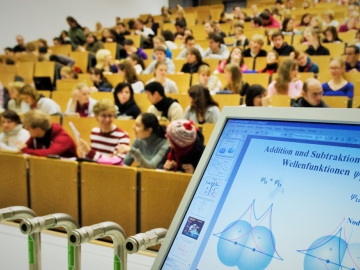
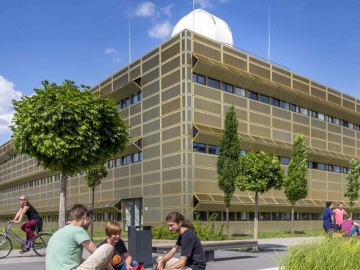
A well-networked university
The main place of study is the University of Potsdam. In Germany, it is considered a medium-sized university and, despite having a student population of over 20,000, it is easy to orient yourself. The university is largely located on a spacious, modern campus in Golm, but also in historic buildings on the New Palace campus in the Sanssouci Park and in Griebnitzsee. The university has over 50 joint chairs with 21 research institutes, which not only ensures that they are linked closely, but also that a large range of current research projects are directly incorporated into teaching, enabling students to experience scholarly dynamism in their subjects.
Customized study
In astrophysics, the teachers’ doors are literally always open to students. This surprised Tomer at first because he was used to a mass university during his Bachelor’s degree. Students were an anonymous crowd there. In Potsdam, however, he engaged in regular exchange with the lecturers, even outside lectures and seminars. Quite a few of his fellow students work as student assistants at the university or at the external research institutes nearby, enabling them to gain valuable insights into current astrophysical research. Quite often, initial contacts are established here for the later Master’s thesis or doctoral projects.
In addition to gaining outstanding training in their chosen subject, students can simultaneously acquire key skills, providing assistance in matters concerning entering the workforce or starting up a professional enterprise. The University of Potsdam is regarded as being a very family-friendly establishment, featuring a variety of supporting options for young parents, services geared specifically to the children of university faculty, staff and students, and children’s play areas. Students themselves play an important role in ensuring that Potsdam is an attractive place to live and study. They are engaged in a wide range of projects organized by the student body. These range from subject-specific associations, to political and cultural groups, to sports teams and related associations.
Potsdam - a green city
Traveling into the countryside for research or study purposes is not an extravagant luxury for Tomer, but simply a reality. Like many other researchers and students, he uses the convenient local transportation connections every day. Potsdam is only 25 kilometers away from Berlin, Germany’s exciting capital; however, Potsdam has managed to retain its charm as a small city. Furthermore, it is quiet and there is enough space on the university campus to study theoretical research issues intensively. Students, residents and tourists alike enjoy relaxing in the great many parks and green areas. One popular attraction is the Sanssouci Palace. Surrounded by extensive gardens, UNESCO declared the area a World Heritage Site in 1990. In the immediate vicinity of downtown, over 20 lakes and water bodies are ideal for swimming or water sports with or without boats. As an Olympic base, Potsdam excels in canoeing and rowing, with several Olympic medalists to its name.
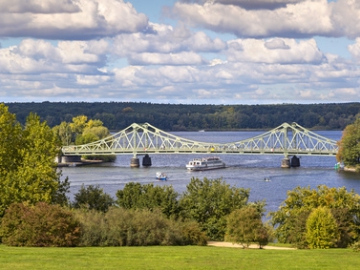
Berlin acting as a magnet
Tomer’s initial plans were to spend a sabbatical abroad in Berlin after completing his demanding Bachelor’s degree; he learned German in record time at the Adult Education Center (Volkshochschule) and discovered, by pure chance, the option to study astrophysics at the University of Potsdam. He directly enrolled for physics for the next semester and has stayed in Potsdam ever since. Like many scholars, Tomer commutes between Potsdam and Berlin, where he lives, using the time on the regional express train to read scientific articles, review papers or to prepare presentations. It is a real treat to have so much time to read, he says, though it takes the train just 30 minutes to travel the distance. Potsdam’s proximity to Berlin offers almost endless possibilities when it comes to culture, recreation, partying, clubbing, music, history, politics, entertainment and, last but not least, science and research. The Berlin region also acts as a magnet for young entrepreneurs from all over the world and is evolving into a major European center for start-ups. Like Tel Aviv in Israel, where Tomer Shenar travels back to at regular intervals to visit his family and friends. And should the occasion arise, they will together admire the fantastic starry sky.
